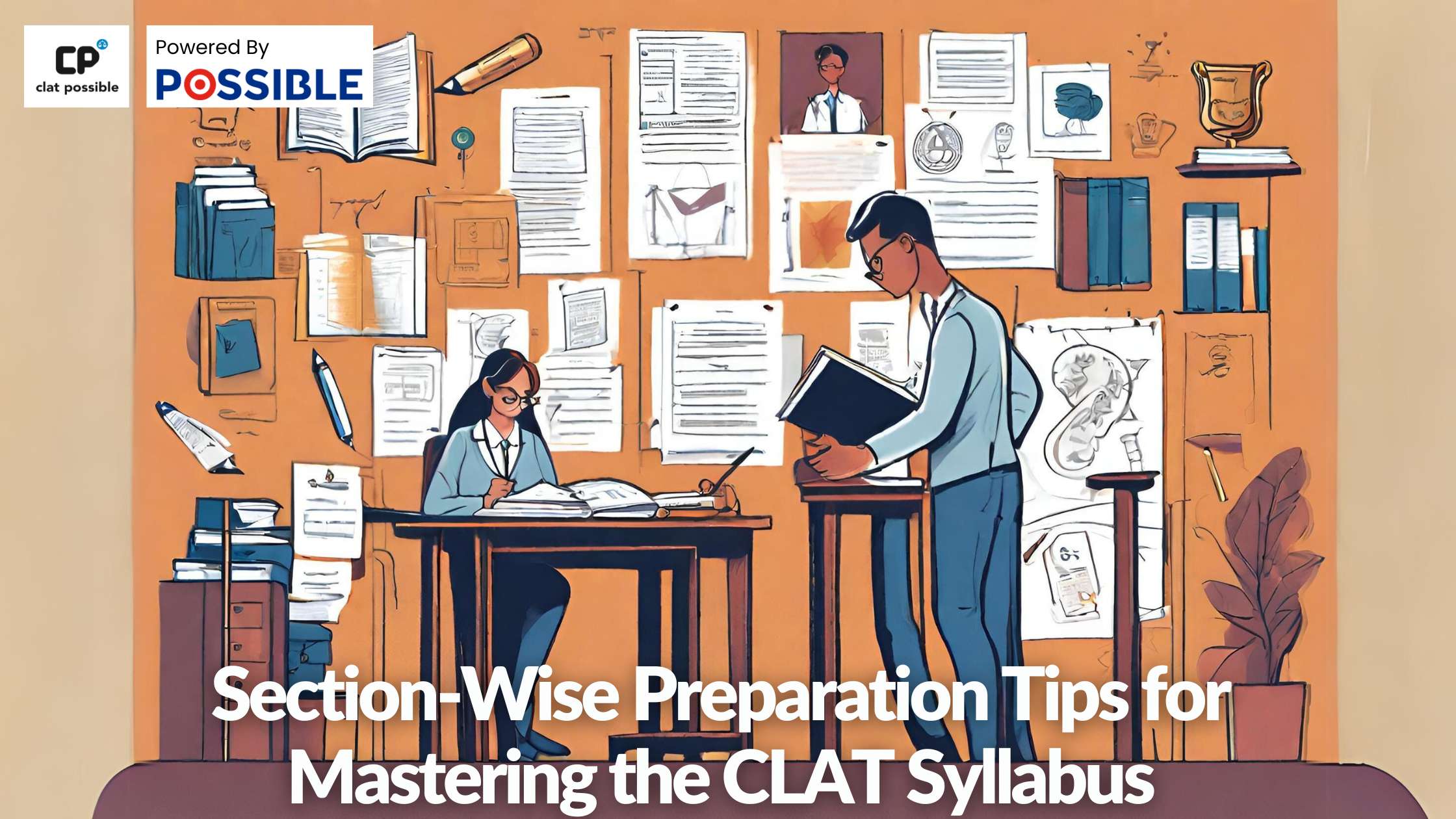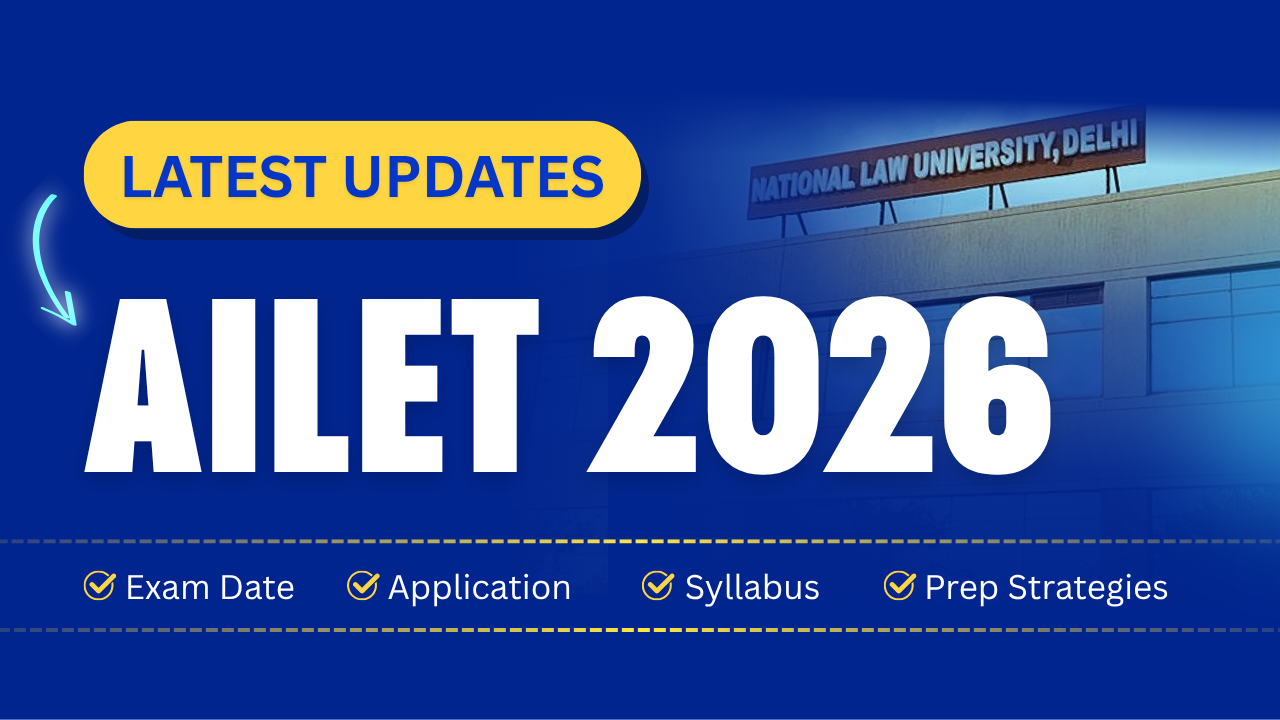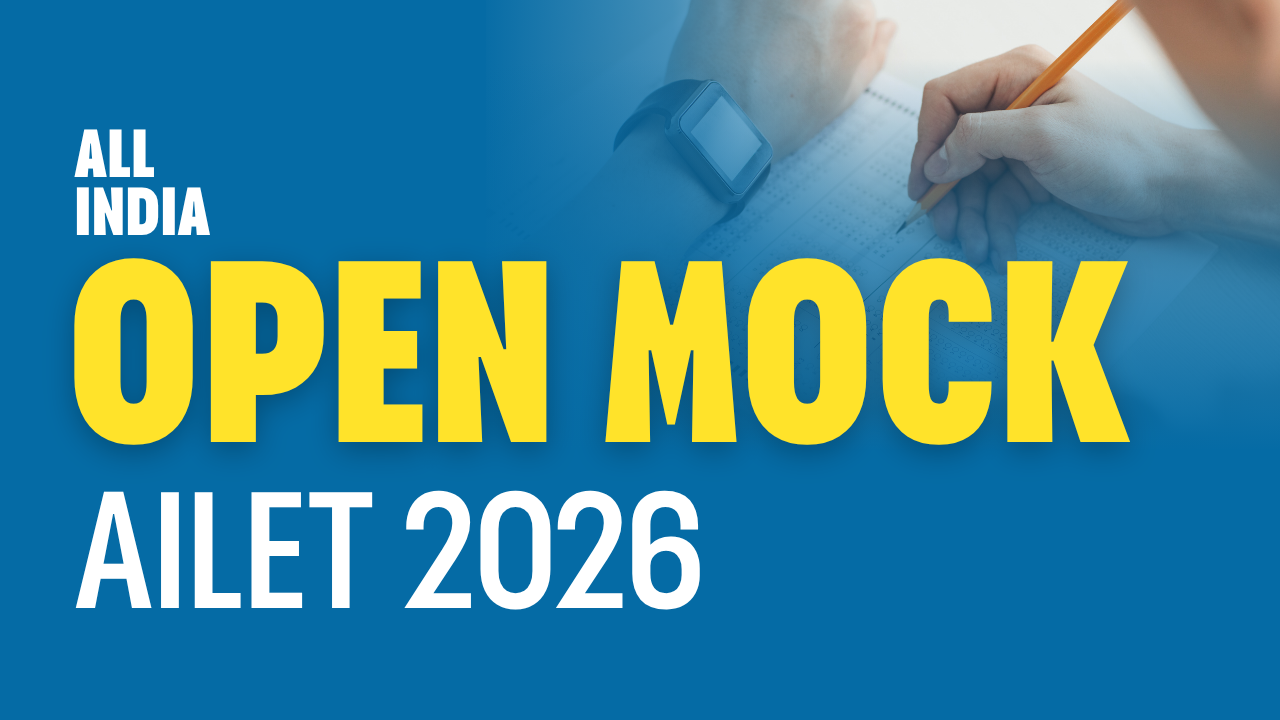By I Oct 11, 2023
 Embarking on the journey to crack the Common Law Admission Test (CLAT) involves an intricate understanding of its syllabus and strategic preparation for each section. The CLAT syllabus harbours an array of sections, each demanding a unique approach and proficiency in diverse skills. Here’s a detailed guide with meticulous section-wise preparation tips to assist you in mastering the CLAT syllabus and pave your way towards a rewarding legal career.
Embarking on the journey to crack the Common Law Admission Test (CLAT) involves an intricate understanding of its syllabus and strategic preparation for each section. The CLAT syllabus harbours an array of sections, each demanding a unique approach and proficiency in diverse skills. Here’s a detailed guide with meticulous section-wise preparation tips to assist you in mastering the CLAT syllabus and pave your way towards a rewarding legal career.
English Section
Overview
The English section is meticulously crafted to assess candidates’ proficiency in English comprehension and grammar. Encompassing reading comprehension, synonyms, antonyms, sentence correction, and other elements, it tests the candidate's ability to comprehend, derive conclusions, and have command over English vocabulary and grammar.
Key Topics
- Reading Comprehension: Focus on passages related to legal matters, moral stories, and social issues.
- Vocabulary: Concentration on synonyms, antonyms, and contextual usage of words.
- Grammar: Emphasis on sentence correction, fill in the blanks, etc.
Preparation Tips
- Regular Reading: Engage in a regular reading habit focusing on diverse topics and themes to gain familiarity and better understand reading passages. Include newspapers, online articles, and editorials in your daily reading habit.
- Vocabulary Building: Utilize flashcards, mobile apps, or a dedicated notebook for vocabulary building. Note down new words, their meanings, and example sentences.
- Time-Bound Practice: Employ timed practice sessions, attempting various question types to enhance your speed and accuracy under exam conditions.
Logical Reasoning
Overview
Logical Reasoning demands a methodical and analytical mindset. Major topics revolve around puzzles, analogies, sequence testing, and logical sequences, designed to appraise your capability to comprehend patterns and deduce logical inferences.
Key Topics
- Logical Puzzles: Predominantly involving number and letter sequences.
- Analogies: Establishing relationships between disparate elements.
- Syllogisms: Involving logical arguments and deducing conclusions.
Preparation Tips
- Puzzle Solving: Allocate dedicated time daily to solve different types of puzzles and problems to sharpen your analytical skills.
- Pattern Recognition: Enhance your capability to recognize patterns and logical sequences in questions to deduce answers efficiently and accurately.
- Mock Tests: Undertake various logical reasoning mock tests, reflecting on mistakes and refining your approach and strategies subsequently.
Legal Aptitude
Overview
Integral to the CLAT examination, the Legal Aptitude section focuses on evaluating the candidate's interest towards the study of law, research aptitude, and problem-solving ability. This section presents legal propositions and sets of factual situations that require candidates to employ their analytical capabilities.
Key Topics
- Legal Propositions: Basic foundational laws and principles are presented, with questions often probing the application thereof.
- Legal Maxims: Traditional principles, often presented in Latin, that convey foundational legal doctrines.
- Constitutional Law: A focus on the Indian Constitution, its provisions, and applications.
Preparation Tips
- Legal Principles: Develop a foundational understanding of core legal principles and ensure you are adept at applying them to real-world scenarios.
- Mock Scenarios: Regularly practice with hypothetical situations to gauge your analytical and legal reasoning capabilities.
- Constitutional Learning: Engage in thorough learning of constitutional laws, focusing on landmark cases and judgements.
General Knowledge and Current Affairs
Overview
The General Knowledge and Current Affairs section seeks to assess candidates’ awareness about dynamic world occurrences and static general knowledge. Here, the questions range from recent happenings in the political, economic, and sporting world to foundational information about history, geography, and general science.
Key Topics
- Static GK: Including aspects of geography, history, and general science.
- Current Affairs: Including recent developments in the fields of sports, politics, economy, etc.
Preparation Tips
- Daily Updates: Dedicate time daily to update yourself on national and international events via newspapers and online news applications.
- Note-Making: Develop the habit of jotting down essential points from daily news, making revision seamless.
- Static GK Revision: Utilize structured resources to revise static GK periodically, ensuring retention.
Quantitative Techniques
Overview
Quantitative Techniques are aimed at assessing the numerical ability of the candidate through elementary mathematics. The questions encompass a range of topics like arithmetic, algebra, and geometry, tailored to test a candidate’s aptitude for numerical calculations and logical problem-solving.
Key Topics
- Arithmetic: Basic number theory, percentage, profit and loss, and time-speed-distance.
- Algebra: Fundamental algebraic expressions and operations.
- Geometry: Basic geometrical concepts and properties.
Preparation Tips
- Concept Clarity: Ensure your basic concepts related to arithmetic, algebra, and geometry are crystal clear.
- Practice Sessions: Engage in timed practice sessions, ensuring you can efficiently tackle mathematical problems under exam conditions.
- Shortcut Methods: Learn and practice shortcut methods to save time during the examination.
Conclusion
Mastering the CLAT syllabus necessitates a structured, section-wise, and strategic preparation regime. This detailed guide aims to illuminate your path with meticulous insights into each section and strategic tips to enhance your preparation. A balanced approach, consistent practice, and periodic self-assessment are pivotal in ensuring your efforts are directed effectively towards achieving your CLAT aspirations.
Frequently Asked Questions (FAQs)
Q1: How to ensure consistent preparation across all sections of the CLAT syllabus?
A1: Ensuring consistent preparation across all sections involves devising a structured study schedule that allocates dedicated time to each section, keeping in mind its weightage and your proficiency. Regular practice, mock tests for each section, and timely revision of learned concepts are pivotal. Utilize resources like preparatory books, online courses, and practice papers to enhance your preparedness across all sections.
Q2: What resources can be relied upon for the preparation of Current Affairs for the CLAT exam?
A2: For Current Affairs, regular reading of national and international news from reliable newspapers and news applications is crucial. Furthermore, monthly current affairs magazines, online platforms, and yearly compilations specifically designed for CLAT aspirants can be immensely helpful. Engage in discussions, quizzes, and participate in online forums to keep abreast of current affairs effectively.
Q3: How crucial is the Legal Aptitude section, and can it be mastered without a legal background?
A3: The Legal Aptitude section is pivotal and often a decider in the CLAT exam due to its substantial weightage. Mastery without a legal background is achievable with a systematic approach towards understanding and applying legal principles and propositions. Focus on understanding the application of laws in given scenarios rather than rote learning. Utilize various resources, take regular mock tests, and practice scenario-based questions rigorously.
Q4: What strategies can be employed to manage time effectively during the CLAT examination?
A4: Effective time management during the CLAT exam can be achieved by practicing with timed mock tests, which help you get accustomed to the exam format and pressure. Develop a strategic approach towards each section, deciding in advance the time to be allocated to each based on your strengths and weaknesses. Employ shortcut methods and quick solving techniques wherever possible and ensure to not spend excessive time on a single question.
Q5: How to maintain a balance between CLAT preparation and school studies?
A5: Balancing CLAT preparation with school studies demands meticulous planning. Dedicate specific hours in your daily schedule for CLAT preparation, ensuring it doesn’t clash with your school schedule and assignments. Utilize weekends and holidays effectively for focused CLAT preparation sessions. Ensure to keep time for relaxation and pursue hobbies to maintain a healthy study-life balance. Moreover, try integrating school learnings, especially in subjects like English and Mathematics, into your CLAT preparation.
For more informative blogs on CLAT 2024 preparation, Click Here!



